Spies Like Us: Matt Helm
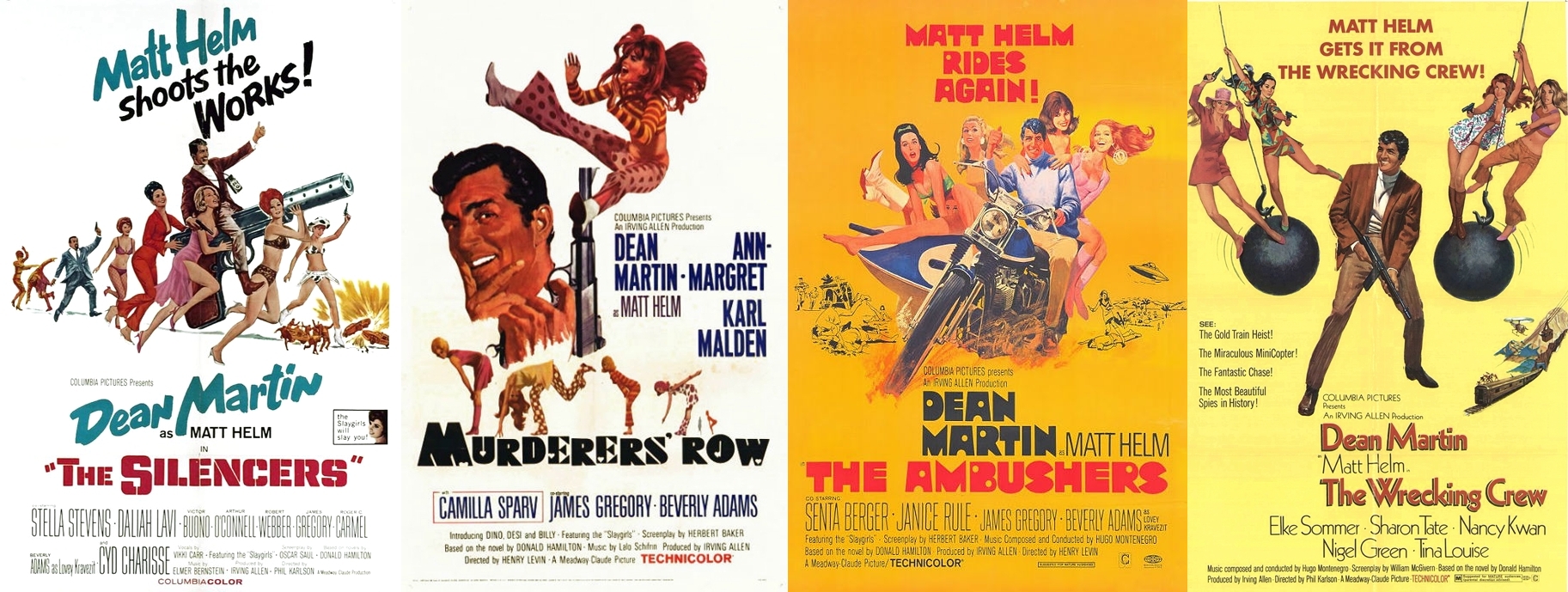
When Goldfinger stuck some real gold at the box office in 1965, suddenly espionage became the #1 genre for movies and TV shows. That craze burned brightly for 3 years and has never been completely extinguished. (James Bond continues to exercise his license to kill and new additions, like Jason Bourne, crop up from time to time.)
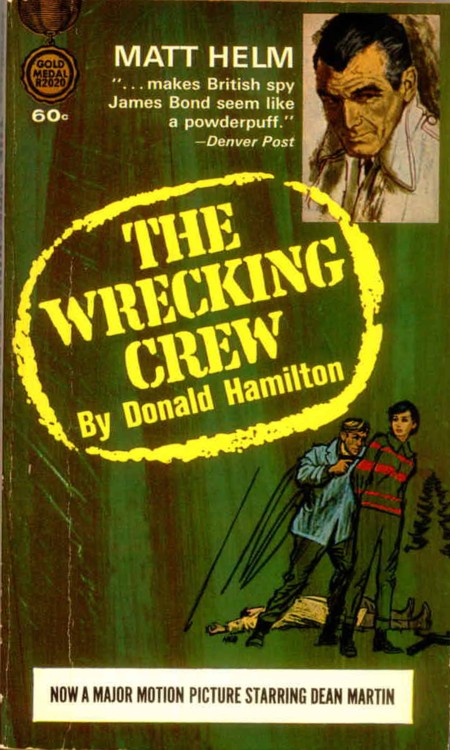 But back when spies were all the rage, the most successful spy at the movie theaters after 007 was actually Dean Martin as Matt Helm! Like Bond, Helm began as a series of novels. The character was created by author Donald Hamilton as a ruthless, no-nonsense counter agent who was hard-boiled and brutal and continued his career through 27 novels right up to 1993.
But back when spies were all the rage, the most successful spy at the movie theaters after 007 was actually Dean Martin as Matt Helm! Like Bond, Helm began as a series of novels. The character was created by author Donald Hamilton as a ruthless, no-nonsense counter agent who was hard-boiled and brutal and continued his career through 27 novels right up to 1993.
But Matt Helm in the movies was an entirely different story. The movies simply took the character name and the titles from some of the novels, but then went in a wildly different direction (something that wouldn’t happen with the Bond series until after Thunderball). Instead of being ruthless and hard-boiled, Helm’s character was simply reworked into the same character Dean Martin played his whole life – that of an easy-going, wisecracking, alcohol-loving skirt chaser.
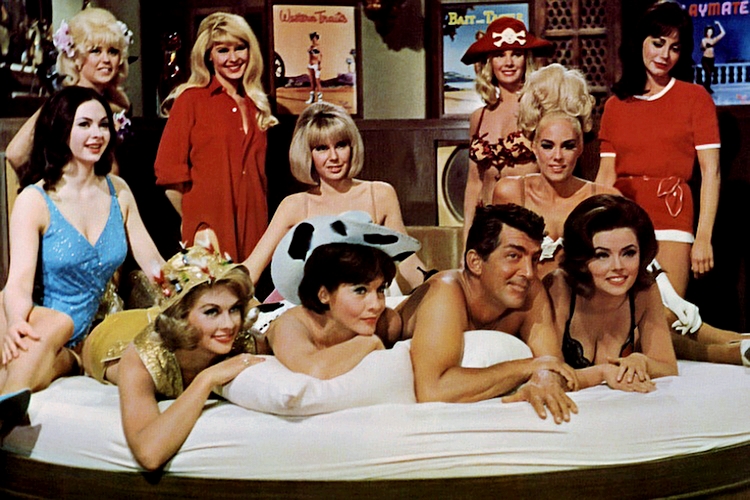 The plots are extremely silly, often making no sense at all. They find ways to get Dean Martin songs onto the soundtrack even though Matt Helm never sings at all in any of the films, and there is the occasional Frank Sinatra joke that pops up. Although it may seem to be difficult, these films succeed in being even more sexist than the Bond films.
The plots are extremely silly, often making no sense at all. They find ways to get Dean Martin songs onto the soundtrack even though Matt Helm never sings at all in any of the films, and there is the occasional Frank Sinatra joke that pops up. Although it may seem to be difficult, these films succeed in being even more sexist than the Bond films.
Surprisingly, the Matt Helm series lasted longer than any of the other Bond-wannabes racking up 4 features between 1966 and 1969: The Silencers, Murderer’s Row, The Ambushers and The Wrecking Crew. Viewed today, it’s hard to understand why this series went through 3 sequels when Our Man Flint or Michael Caine’s Harry Palmer were each only good for a pair of pictures. The only explanation can be:
1.) The enduring popularity of Dean Martin
2.) The multitude of curvaceous women who wiggled their way through these films, including Stella Stevens, Ann-Margaret, Elke Sommer, Sharon Tate and Tina Louise.
Although a 5th movie (The Ravagers) was announced at the end of The Wrecking Crew, disappointing box office for that 4th film meant there would be no more Helm films.
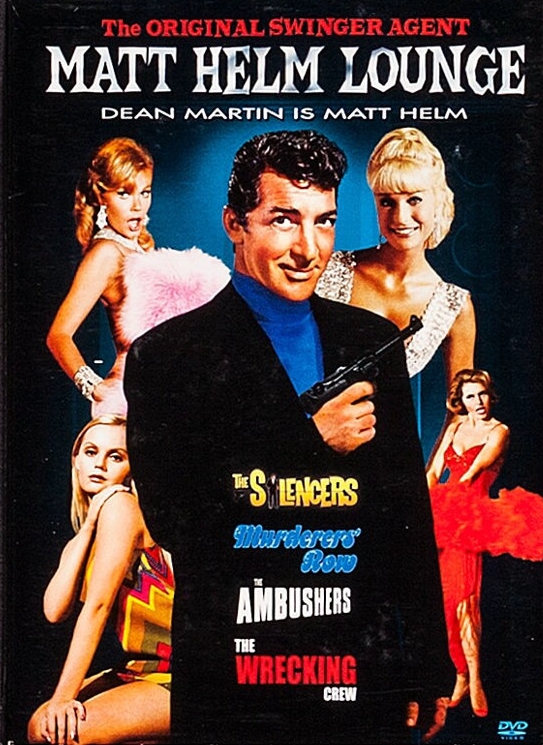 Today, these movies present a pretty good time capsule of what popular entertainment was like in the “adult” world of the 1960s before the Boomers took over Hollywood and the style of movie-making shifted radically. A DVD set of all 4 films was released back in 2005 but is currently out of print in the US (although it remains in print in the UK) and commanding pretty steep prices on the second-hand market.
Today, these movies present a pretty good time capsule of what popular entertainment was like in the “adult” world of the 1960s before the Boomers took over Hollywood and the style of movie-making shifted radically. A DVD set of all 4 films was released back in 2005 but is currently out of print in the US (although it remains in print in the UK) and commanding pretty steep prices on the second-hand market.
Maybe it would be better to buy yourself a good bottle of Scotch and listen to an old Dean Martin CD.
Fight Back against Telephone Fraudsters
 It’s a lucky person who can go through a typical day without at least one call on their smartphone from a potential scam artist. The experts say there are 3 simple steps you can use to protect yourself from being ripped off:
It’s a lucky person who can go through a typical day without at least one call on their smartphone from a potential scam artist. The experts say there are 3 simple steps you can use to protect yourself from being ripped off:
1.) Never answer a phone call from a number you don’t recognize. Let it go to voicemail. Then, listen to any voicemail they may have left to see if it’s from a friend or business you recognize.
2.) Never make a quick decision (especially if it’s about money or sharing personal information) during a phone conversation.
3.) Before committing to any investment “opportunity,” ask for the broker’s name. Then, check them out with your state’s securities regulator to see if he or she is registered in your state or visit brokercheck.finra.org, where you can compare the information the person on the phone gave you with the officially listed details.
How Boomtown Can Keep Your Brain Healthy!
 Great news! Researchers at John Hopkins University have uncovered a link between music and a healthy brain. According to their study, listening to music on a regular basis (like logging onto BoomtownAmerica.com every day) can reduce anxiety, blood pressure, pain as well as improving memory, mood, mental alertness and sleep quality.
Great news! Researchers at John Hopkins University have uncovered a link between music and a healthy brain. According to their study, listening to music on a regular basis (like logging onto BoomtownAmerica.com every day) can reduce anxiety, blood pressure, pain as well as improving memory, mood, mental alertness and sleep quality.
So, rock on! It helps keep you young & healthy!
R.I.P. Art Rupp
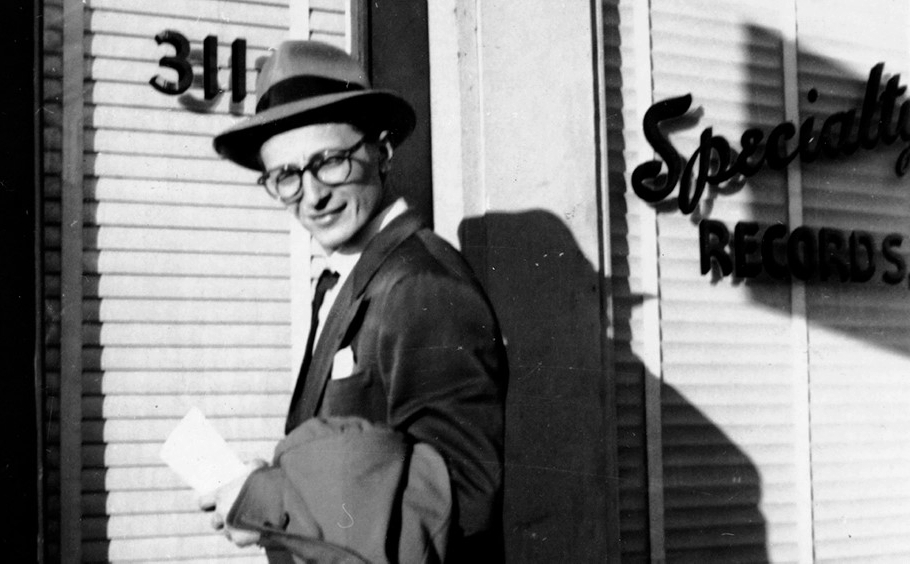 Art Rupp is in the Rock & Roll Hall of Fame. Yet, most people are totally unaware of who he is and the role he played in the early days of rock & roll.
Art Rupp is in the Rock & Roll Hall of Fame. Yet, most people are totally unaware of who he is and the role he played in the early days of rock & roll.
Art Rupp was one of the white guys (along with Leonard Chess & Atlantic Records’ Jerry Wexler) who founded an independent record label in the 1950s dedicated to signing black recording acts and getting their music in front of a white audience. In Rupp’s case, he founded Specialty Records in Los Angeles. Among the acts he signed were Lloyd Price (“Personality”), Larry Williams (“Dizzy Miss Lizzy,” “Bony Maronie”) and a gospel group called the Soul Stirrers. That group featured a young singer named Sam Cooke, who wanted a solo career. He also wanted to appeal to the widest possible audience. So, he cut a record for Rupp named “You Send Me.” Rupp didn’t think it sounded black enough – it was too pop oriented. So, he let Cooke take the record to RCA, who bought it and launched Cooke on a string of hit records that only ended with Cooke’s untimely death.
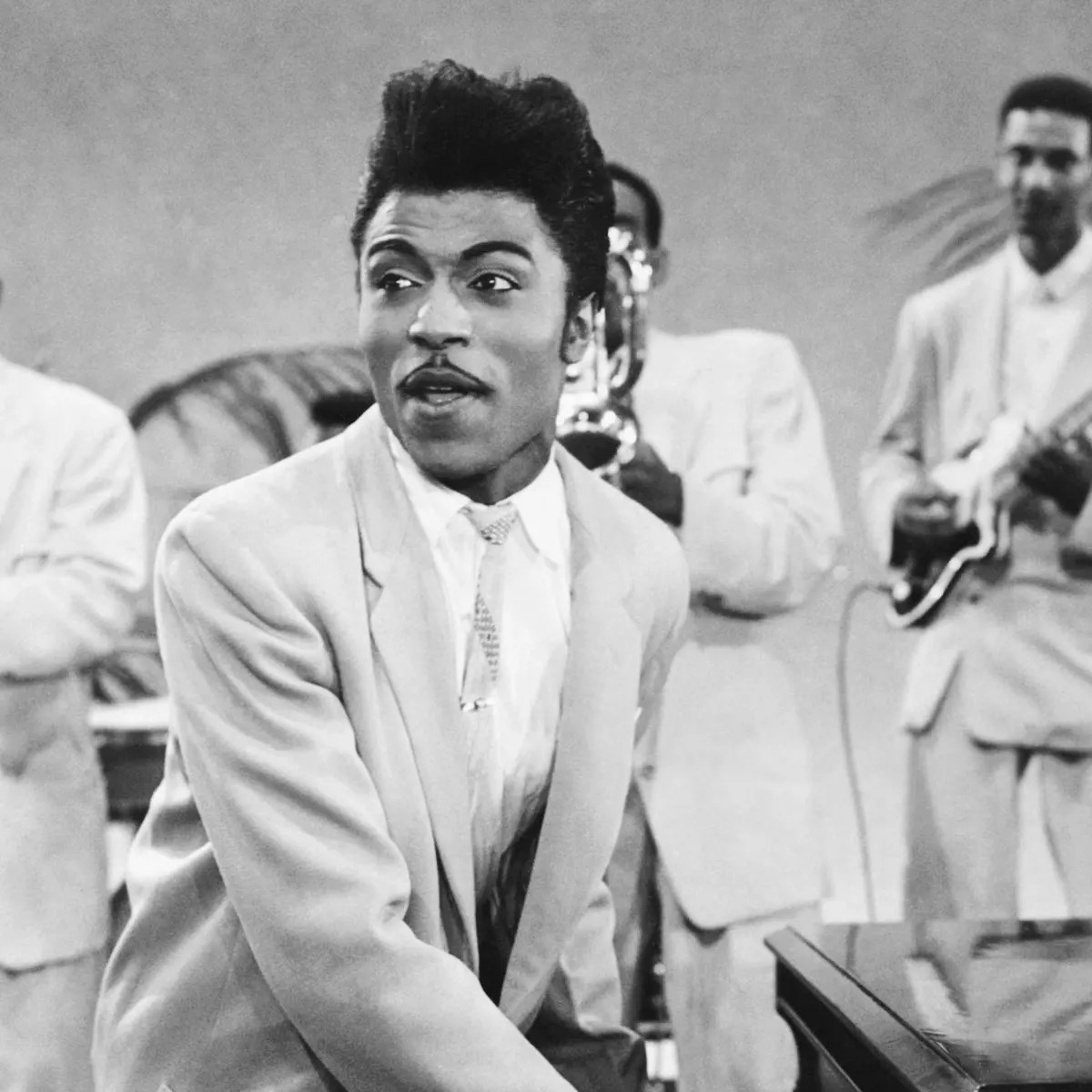 But by far, his greatest discovery was a young kid from Macon, Georgia who went by the stage name Little Richard. After signing Richard in 1955, Rupp and his producer Bump Blackwell were having a tough time getting anything worth releasing. During a break from one recording session, Richard and Blackwell were at an inn near the studio. Richard started playing on the eatery’s piano and singing a song he often performed live but thought too dirty to record – “Tutti Fruitti.” Blackwell realized that Richard really came alive only when playing the piano while he sang. Prior to this, the producer had Richard standing by a microphone and not playing while singing.
But by far, his greatest discovery was a young kid from Macon, Georgia who went by the stage name Little Richard. After signing Richard in 1955, Rupp and his producer Bump Blackwell were having a tough time getting anything worth releasing. During a break from one recording session, Richard and Blackwell were at an inn near the studio. Richard started playing on the eatery’s piano and singing a song he often performed live but thought too dirty to record – “Tutti Fruitti.” Blackwell realized that Richard really came alive only when playing the piano while he sang. Prior to this, the producer had Richard standing by a microphone and not playing while singing.
Back to the studio they went. They cleaned up the lyrics of Richard’s song (like changing “Tutti Frutiti, Good Booty” to “Tutti Fruitti, Aw Rootie!” Released in September of 1955, the record quickly became one of the songs that helped shape and define the music we now call rock & roll. Little Richard, as we know, went on to record an incredible string of hits for Rupp (“Long Tall Sally,” “Good Golly Miss Molly,” “Rip It Up” and many more).
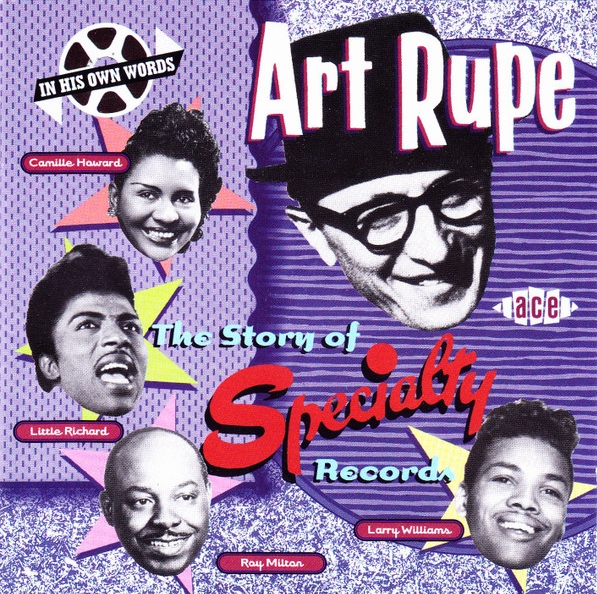 But there was a darker side to Rupp. Like many of the other white label owners, while they brought black music to white America, they kept most of the profits that music generated to themselves. Eventually, Richard would sue Rupp for back royalties, ultimately accepting a meager $11,000 settlement.
But there was a darker side to Rupp. Like many of the other white label owners, while they brought black music to white America, they kept most of the profits that music generated to themselves. Eventually, Richard would sue Rupp for back royalties, ultimately accepting a meager $11,000 settlement.
Rupp left the music business, selling its catalog to Fantasy Records in the 1990s and Rupp founded a charitable foundation which supports education. Rupp passed away over the weekend of April 17th. He was 104!
R.I.P Bobby Rydell
 One of the early teen idols of the Bandstand era – Bobby Rydell passed away on April 5, 2002 of pneumonia, 3 weeks shy of his 80th birthday.
One of the early teen idols of the Bandstand era – Bobby Rydell passed away on April 5, 2002 of pneumonia, 3 weeks shy of his 80th birthday.
Rydell rose to fame in the late fifties and early sixties as one of the recording acts to be heavily featured on Dick Clark’s American Bandstand. In those days, the program originated in Philadelphia, which was Rydell’s home town.
Born Robert Ridarelli, Bobby began his career winning a local talent contest that secured him a place on a local TV show and earned him a record contract. However, his first couple of singles flopped and his label dropped him.
Changing his name to Rydell, Bobby was signed to Cameo Records and after a few tries, hit the Billboard Hot 100 with “Kissin’ Time” in 1959. He followed that up with “We Got Love,” which earned him his first gold record. In all, Rydell scored 34 records in the Hot 100, placing 8 songs in the Top 20. Despite earning multiple gold records, Rydell never had a #1 hit – his best-selling record, “Wild One” stalling at #2.
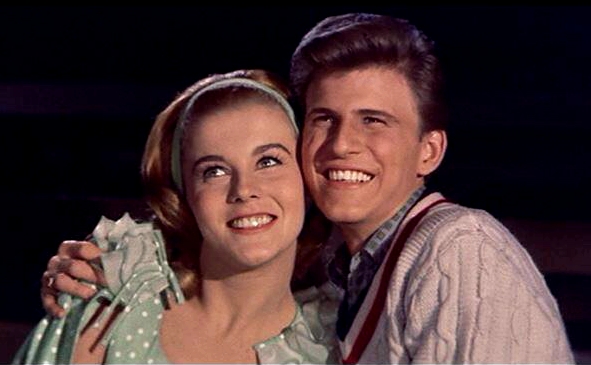 Today, Rydell is best remembered for two things – co-starring with Ann-Margaret in the movie version of Bye Bye Birdie in 1963 and having the high school in the wildly successful musical Grease named after him.
Today, Rydell is best remembered for two things – co-starring with Ann-Margaret in the movie version of Bye Bye Birdie in 1963 and having the high school in the wildly successful musical Grease named after him.
Rydell continued to perform and tour right up until his passing, often with fellow teen idols Frankie Avalon and Fabian.
Avoid These Debt Scams
 By now, most of us have received that robocall, supposedly from “the I.R.S.,” that they are about to file suit against us unless we call the number they leave. And most of us should know this is an out-and-out scam.
By now, most of us have received that robocall, supposedly from “the I.R.S.,” that they are about to file suit against us unless we call the number they leave. And most of us should know this is an out-and-out scam.
But here are a few more ways con artists try to scam you into believing their “debt collectors:”
Demanding payment on a debt you don’t remember incurring – Some fraudsters prey on the memory challenges some older people may experience, claiming they represent some back or credit card company. Maybe you have or did have an account with such an organization. If you don’t think you owe them any money, hang up on the caller and get into contact with that company on your own. Odds are, you don’t owe them anything.
Inflating an actual debt – Sometimes debt collectors will artificially jack up the amount of a legitimate debt you owe, hoping your ignorance of the law will allow them to collect more than they’re due. This process is known as “biffing” (from the term Balance In Full or BIF). One company was known to add so many artificial “fees” that it could increase the amount owed to 7x what the original debt was. If you think this may be happening to you, check with a reliable attorney before paying anything.
Collecting a “zombie” debt – Most debt is legally uncollectible after several years. Just because a debt collection agency is badgering you with repeated demands for payment doesn’t mean you’re legally obligated. As with “biffing,” seek legal advice if you’re in doubt about whether a debt is actually collectible.
“A lawsuit will be filed!” – This is almost always a pure scam. If a company is entitled to legal relief, they will just go ahead and file, then offer you a chance to pay up to have the suit dropped. No one calls you from the courthouse steps threatening to take action. No one but a con artist, that is.
Cutting Back on Sugar: A Few Suggestions
 As we get older, most of us are cautioned to cut back on the sweet stuff. Here are some alternatives that can allow you to enjoy some treats without causing your doctor to get too concerned.
As we get older, most of us are cautioned to cut back on the sweet stuff. Here are some alternatives that can allow you to enjoy some treats without causing your doctor to get too concerned.
Fruit instead of fruit juice – Most fruit juices have added sugars (check the ingredients), so skip the apple juice and treat yourself to an actual apple instead.
Sparkling water instead of soda – You know how sugar-loaded most carbonated beverages are. There are a large variety of flavor-infused sparkling water drinks that have no sugar at all. Or buy some plain sparkling water and add your own orange or other slice.
Homemade salad dressing instead of store-bought – Most store brands have added sugar. You can make any number of dressings yourself with zero sugar added.
Four Fab Facts About The Fab Four
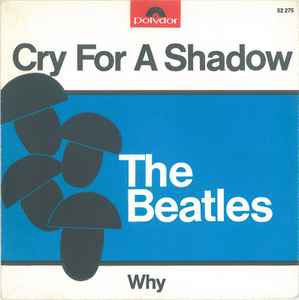
- The last time all four Beatles were in the studio at the same time working on a song was when they were recording “I Want You (She’s So Heavy)” from Abbey Road, recorded on August 20, 1969.
- While everyone knows that Lennon & McCartney were the primary songwriting duo, there is actually one Beatle song credited to Lennon & Harrison. It’s a pure instrumental called “Cry for a Shadow,” recorded in 1962 in Hamburg, Germany during sessions the boys cut backing up Tony Sheridan. It was finally released on the Beatles Anthology I set in 1995. It was of the only official recordings featuring Pete Best on drums.
- On the cover their Help! Album, people think the lads are spelling out “Help” in semaphore, but actually, the flags spell our ‘N-U-J-V.” (You’ll also notice that Capitol Records changed the position of the Beatles so they’re spelling out “N-V-U-J” in the States.)
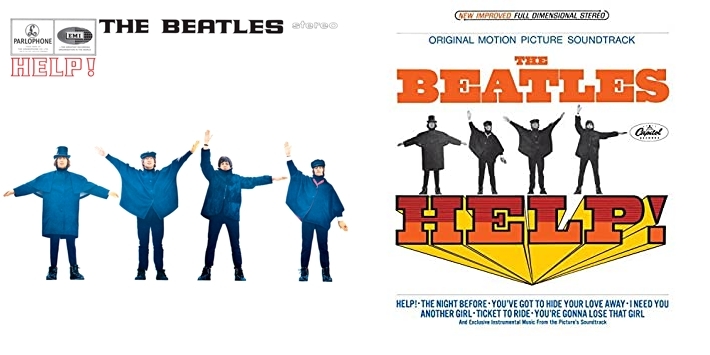 The first Beatle to perform in America was George Harrison. His sister married an American and settled in Illinois. George came to visit her long before Beatlemania took hold and performed a few times with local Illinois bands.
The first Beatle to perform in America was George Harrison. His sister married an American and settled in Illinois. George came to visit her long before Beatlemania took hold and performed a few times with local Illinois bands.
6 Things You Didn’t Know About the Film "The Graduate"

Mike Nichols’ 1967 breakthrough film, The Graduate, was a surprise blockbuster that signaled to studios baby Boomers were ready for more than Walt Disney movies. The film boosted the careers of Dustin Hoffman & Katherine Ross (making them A-list stars overnight) as well as providing a huge lift to the musical careers of Paul Simon & Art Garfunkel (and indirectly resulting in an acting career for Garfunkel).
But here are a few things you might not know about it:
1.) The film’s legendary ending came about by accident. Much has been written about The Graduate’s ending, where Benjamin & Elaine board a bus and then look at each other in a prolonged nervous silence that seems to indicate this isn’t a traditional happy ending. Still, there may be problems for these two down the line.
That ending was never planned. It came about because, on the day that scene was filmed, director Mike Nichols couldn’t be there. He left the film’s editor, Sam O’Steen in charge. O’Steen, very green when it came to directing, didn’t know enough to call out “cut,” so Hoffman and Ross sat there for several moments unsure if the scene was over or, really, what to do next.
When Nichols saw the footage, he liked it and left it in the film.
2.) Hoffman had to give up a part in Mel Brooks’ original version of The Producers to take the part in The Graduate. Brooks had cast Hoffman as Franz Leibkind, the German playwright, a small but flashy part in the film. He totally understood why Hoffman wanted to give that part up to take a lead role. Besides, Hoffman would be appearing with a co-star who was Brooks’ wife, Anne Bancroft!
3.) Mrs. Robinson was really only 6 years older than Benjamin. Although Benjamin is supposed to be a recent college graduate, Hoffman himself was 29 when he got the part. And Bancroft, at 35, was younger than the character she was playing.
4.) None of the characters who are older than Benjamin have first names. Despite boinking on a regular basis, Benjamin always calls his lover, “Mrs. Robinson.” Her first name is never mentioned. That holds true for all other characters in the film who are older than Benjamin & Elaine.
5.) Gene Hackman was cast in the film but fired. Hackman was originally set to play Mr. Robinson, but director Nichols thought he looked too young (he was actually a year older than Bancroft). So, his part was recast. Don’t feel bad for Hackman. That same year, he also had a part in a little film called Bonnie & Clyde, which launched him on a long & successful film career.
6.) That iconic leg Hoffman is looking at in the movie’s poster and the best-selling soundtrack album does not belong to Anne Bancroft. Instead, producers hired a young model for that shot and paid her $25. That model was Linda Evans, who went on the fame on Dallas and later played Mrs. Robinson in stage version of The Graduate on Broadway and London’s West End.
Giving It Their Best Shot
As many have suspected and more than a few predicted, it looks like COVID will be here for the long haul. To make things easy, researchers are already working on a combination flu & COVID vaccine. They say it should be ready by the fall of 2022.
So, it will reduce the number of times you need to be jabbed. And that’s a good thing, right?
Pop Up Player
Latest Posts–Movies & TV
-
The BOO Tube
Local TV Horror Hosts – most of us had ‘em. In New York and northern Jersey, it was Zacherley (aka John Zacherle). In L.A., it was Vampira. Milwaukee had Dr. Cadaverino and Tampa had Dr.…
-
Halloween Movie Ideas - Take 2
GORGON (1964) We were born too late to experience the great Universal horror films in first run theaters. Instead, we watched them on our local TV station’s “Shock-Horror-Monster-Chiller-Nightmare Theater.” You remember. Those late night weekend…
-
Halloween Movie Ideas
I WALKED WITH A ZOMBIE I Walked with a Zombie may be the best movie with the dumbest title in motion picture history. Cranked out by the b-movie horror unit at RKO pictures in 1943,…
-
Now Playing at the Boomtown Drive-In: "I Married a Monster from Outer Space"
Just like I Walked with a Zombie, behind the incredibly silly title lurks a pretty decent little B-movie. I Married a Monster from Outer Space was made by Paramount Pictures in 1958. Directed by Gene…
-
The TV That Time Forgot: Hazel (1961-66)
Hazel was a very popular sit-com that ran for 5 seasons (4 in full color), producing 154 shows, that was also quite popular in syndication. The show was based on a popular one panel cartoon…
-
The TV That Time Forgot: Annie Oakley
There was a time when Westerns dominated television programming so thoroughly that it was tough (with no home video, no streaming, and just 3 networks if you lived in a city big enough to have…



